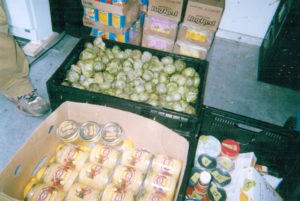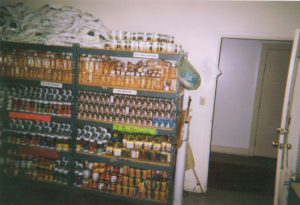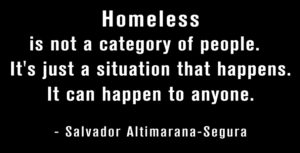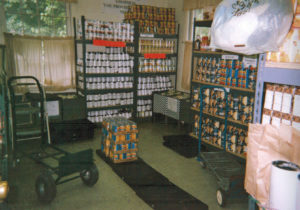Writing this Blog Post was Risky

Writing this blog post was risky. In the early days I worried about peoples’ opinions. I wrote my first blog entries with skeptics in mind. On some level it was important to me for pantry deniers to understand that there are, indeed, hungry people around us
One day I saw clearly that some people aren’t going to like me or my work. Nor are they going to believe what I write, no matter what I say. Once I realized that truth, I knew I’d been wasting energy on other people’s opinions.
I’m no longer interested in convincing anyone about what it means to go to bed hungry.
I’m okay with people saying anything about me because I know the chapters I write are true. The words I write make a difference in peoples’ lives.
This blog is about people creating better lives for themselves while not having enough to eat and lacking proper healthcare, housing.
This blog is about healing and creating new opportunities in one’s life. This blog is about people changing their lives – against all odds.
While I tell this story, I know some people won’t believe a word. It’s okay. I have my story and they have their story.
Food and sex and money are three words and issues more concerned with a person’s core beliefs, emotions, and spiritual attitudes than anything else.
These three words offer rules for everyone. We each have core beliefs around them with opinions about what is okay and what isn’t okay. We have attitudes about food, sex, and money based on what we were taught by family members and peers when we were children. We live our lives based on those experiences. Reduced to their lowest common denominator, these words – food, sex, and money – are the same. They touch core beliefs in ways going straight to the heart and soul.
The food pantry was all about food and money. The sex part was limited, but still there. Sex happened in the pantry hallway line when a shopper suffering with mental illness, a handsome young man who lived in another world, masturbated in the food line.
Our attitudes, opinions, feelings about feeding hungry people are or are not based on facts, statistics, or reality. Nor will facts, statistics, information, change attitudes.
Finally, we all have beliefs about who it’s okay to feed and who it’s not okay to feed. My beliefs are based on life experiences, facts, statistics. Their beliefs are based on the same. I may have taken classes, gone to therapy. And, they may have also.
Their reality about what is okay and my reality about what is okay differ.
In the food pantry hallway, we all looked at the same people and saw different things. This situation is proof positive we each create our own reality about hungry people. Nothing changes either reality. We each see hungry people through lenses shaped by separate life experiences. Hungry people don’t live in two realities.
As the lines got longer, we looked at people in the line. I saw hungry people and they didn’t. I interacted with people weekly who dumpster-dived to feed themselves as well as their children, parents, housemates. Occasionally I read articles about the ethics of dumpster diving. I didn’t think we could explore the ethics of allowing people go hungry because they couldn’t make enough money at their jobs to buy the food they needed to live and work.
People coming to a food pantry can take a three-day-supply of food home each week. The other four days, they’re on their own. That means they can buy more food if they have a SNAP card and if they can get to a store selling food. If they don’t have the money or a SNAP card, they get creative or go hungry. This involves panhandleing, borrowing money or food from friends, relatives, neighbors. They can steal, dumpster-dive, drop in at someone’s house at mealtime, and skip meals.
“Thurman is out of control over at the food pantry” described the local vicar because of the number of people shopping at the pantry and the amount of food they took home.
Thank you for reading this blog post. Please refer it to your favorite social media network.
Thurman Greco













